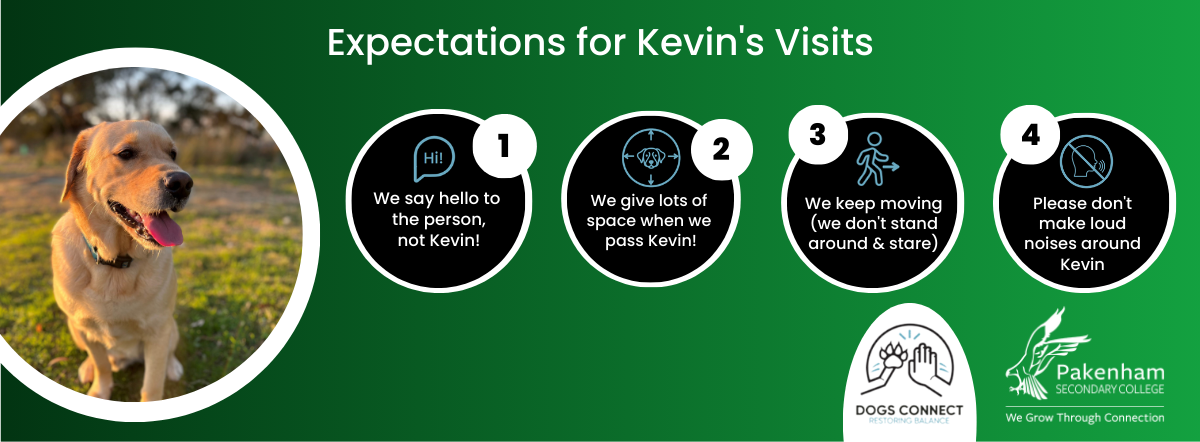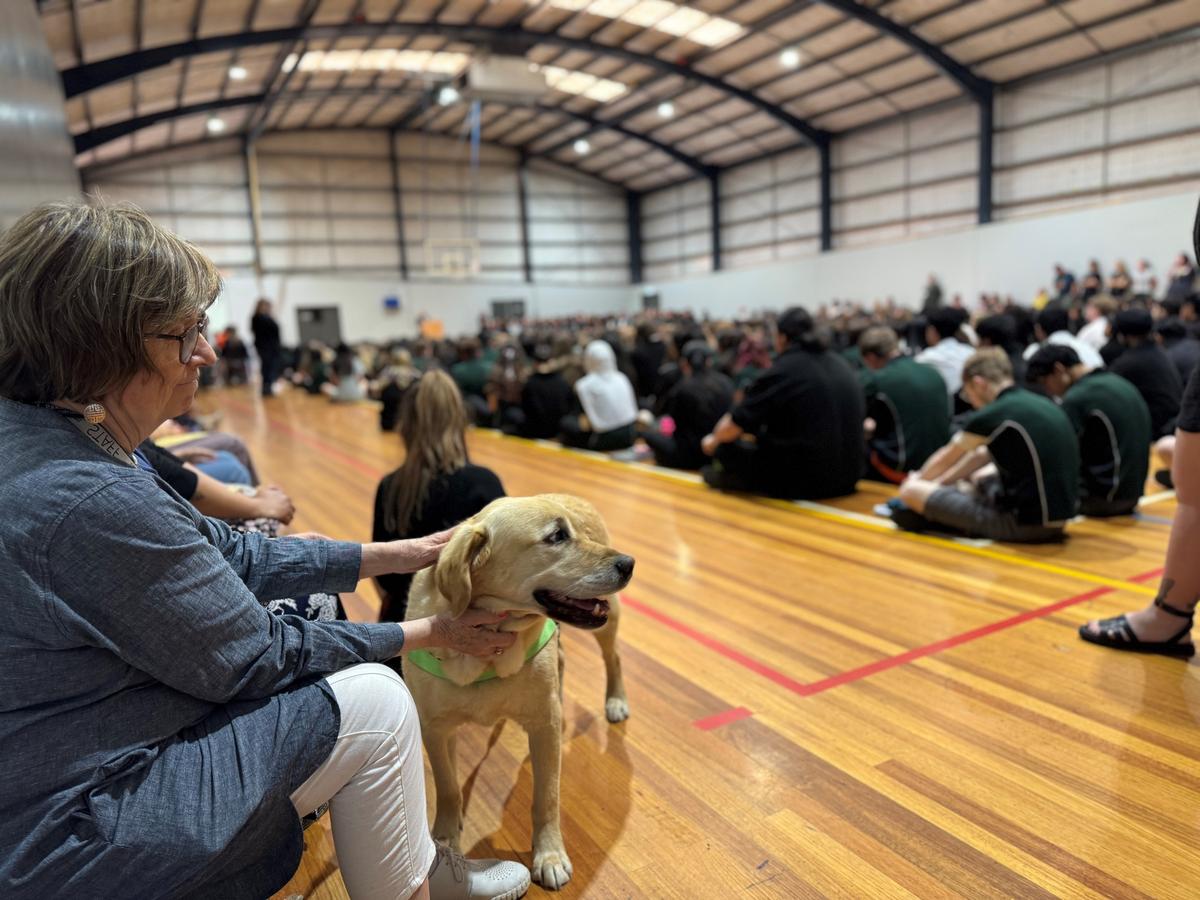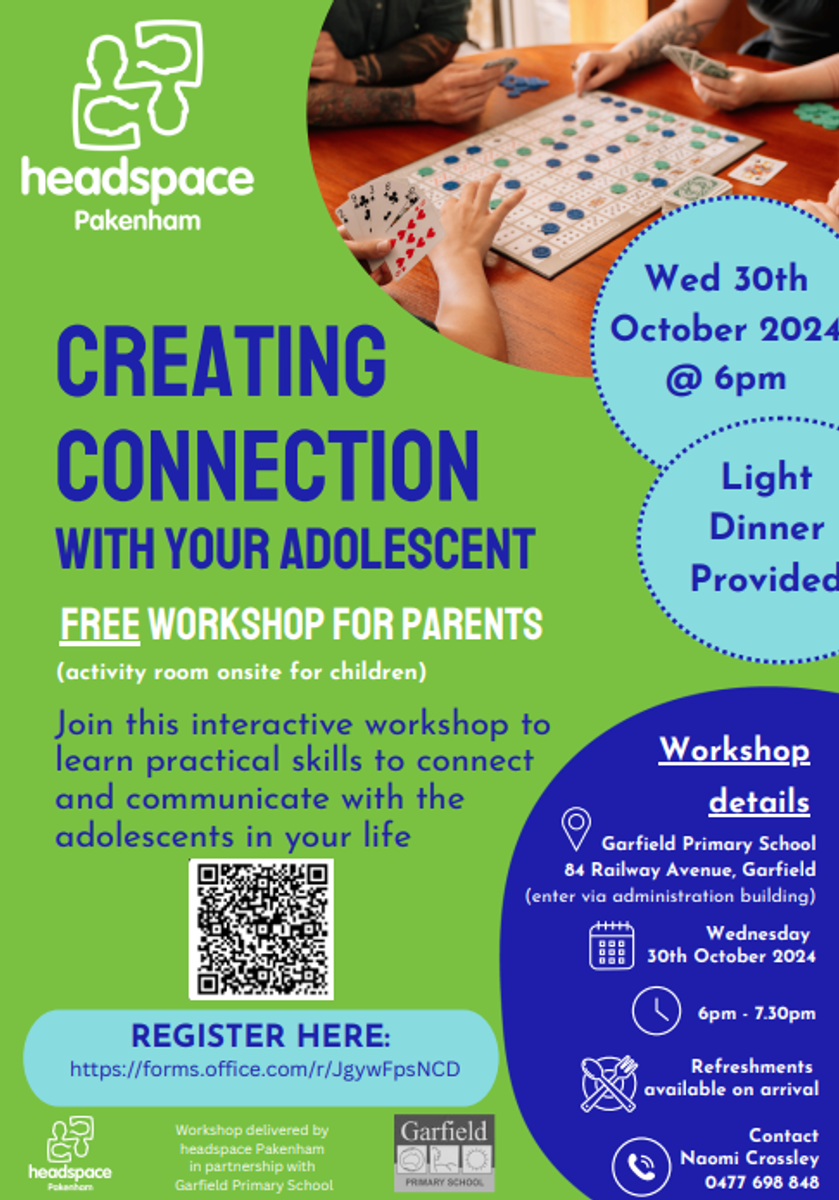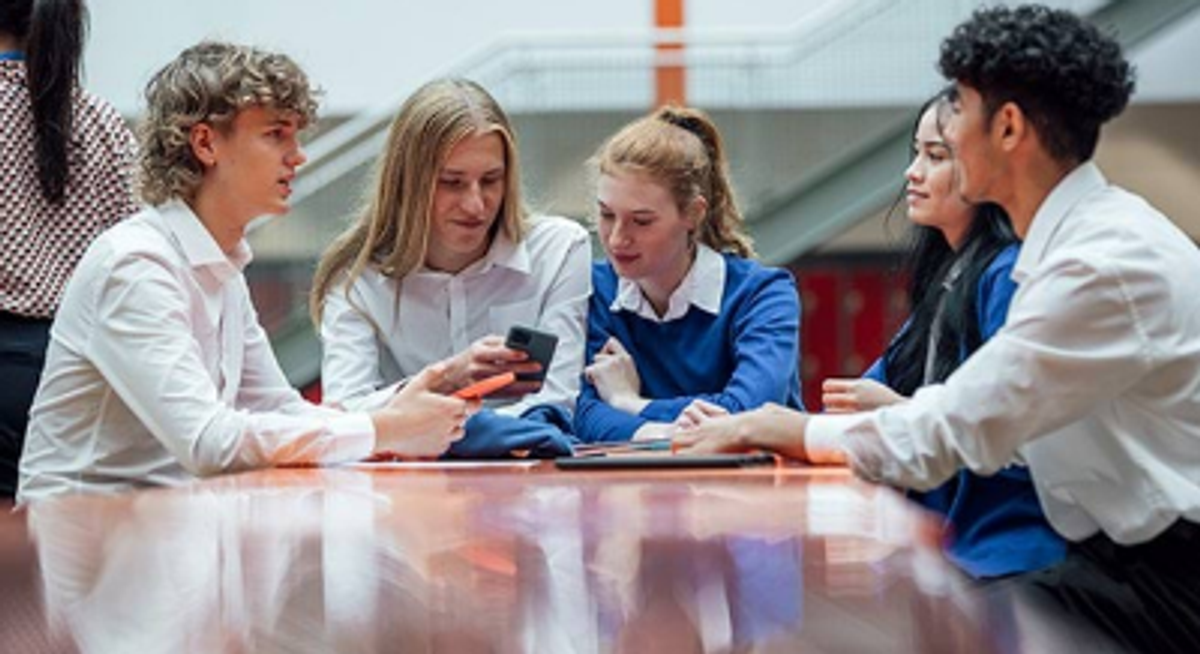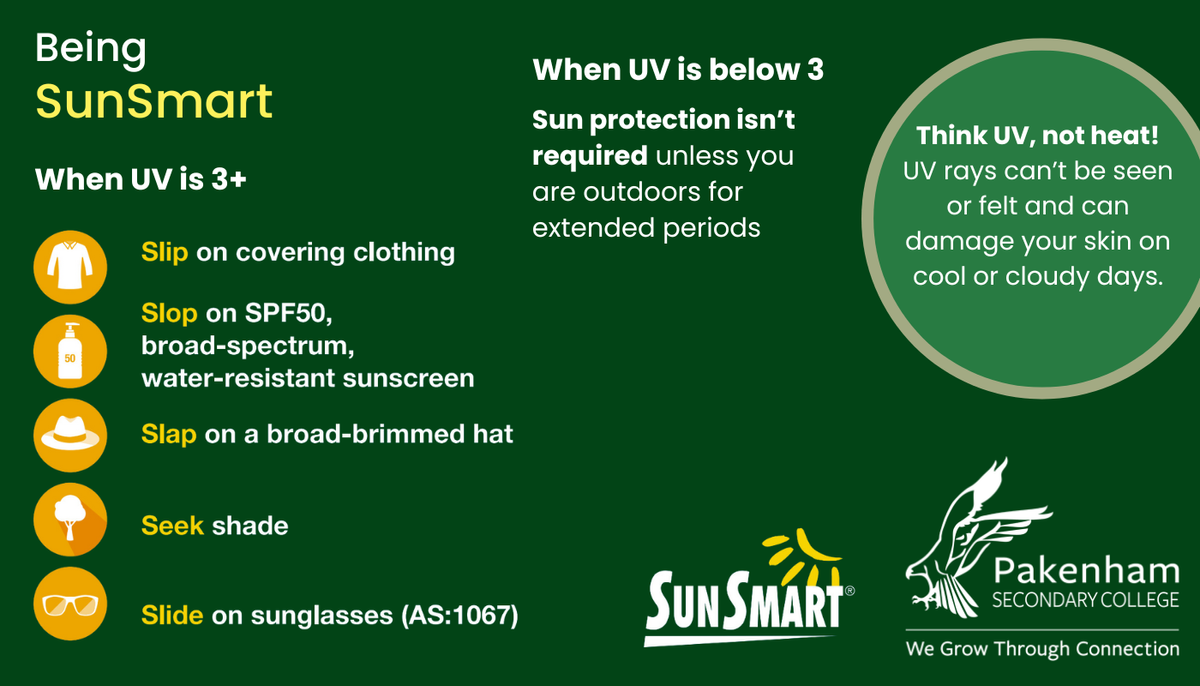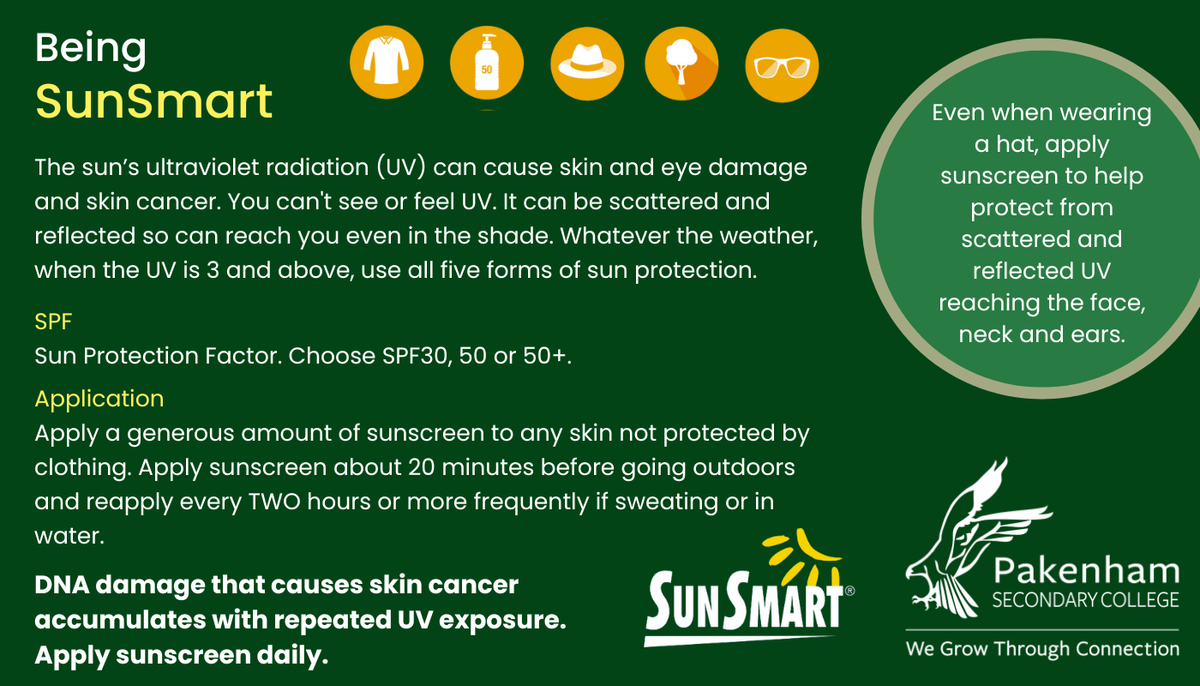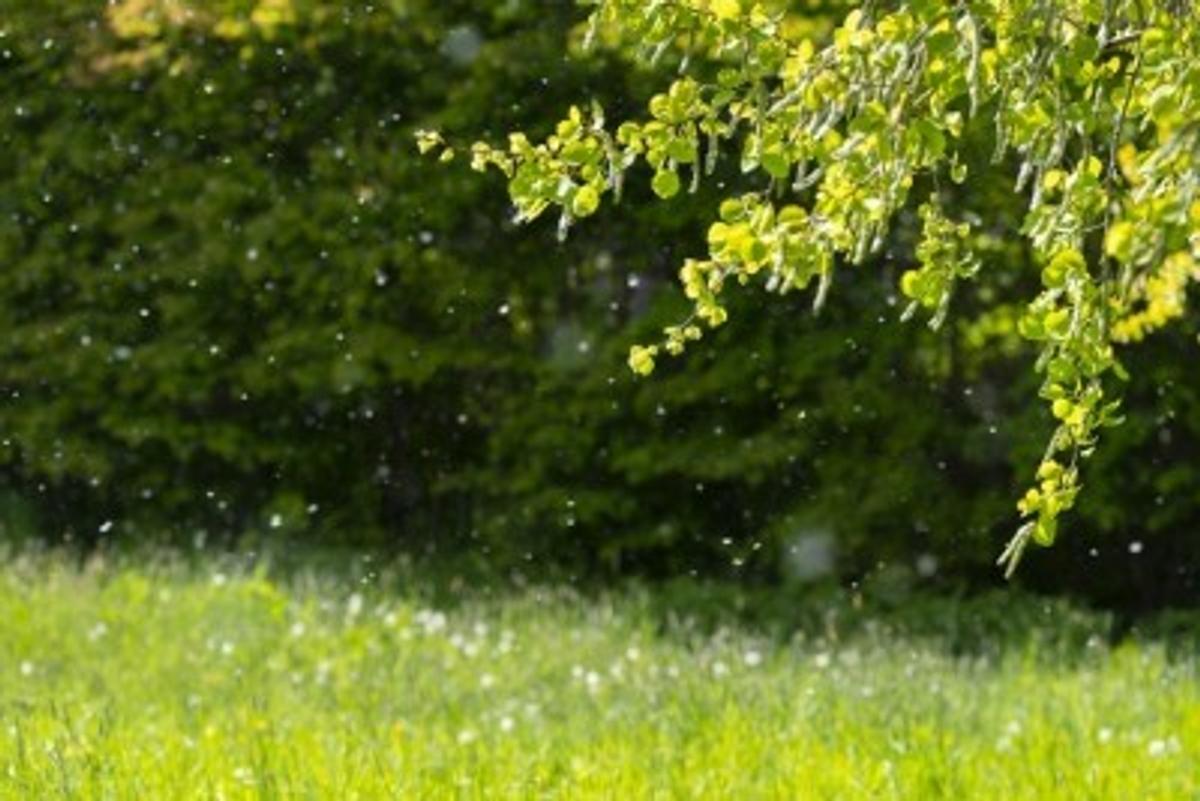Student Health & Wellbeing

Our Wellbeing Dog - Kevin
Kevin is at the College every Tuesday and Thursday, visiting classrooms, attending the Wellbeing Engagement Program and assisting in our Wellbeing Office.
This week Kevin came along to the Whole School Assembly to say goodbye to our Year 12 students.
Free workshop for parents
Help keep school leavers safe for schoolies
This year, schoolies celebrations will run from Saturday, 23rd November to Sunday, 8th December in Victoria, and often beyond this date, across Australia and in Bali and Fiji.
Schoolies is a time when large numbers of school leavers holiday together after the completion of their final exams, usually in a popular tourist spot.
It is a time to celebrate an exciting milestone. However, this shouldn’t mean impacting health and safety, or causing problems for communities where celebrations are held.
How to prepare for schoolies
We would therefore like to share some useful resources:
- Victoria Police videos on sexual assault, drugs and alcohol, and road safety. To access the videos, refer to Staying safe at school leaver celebrations. Students can also access information on how to have a safe night out and watch out for their friends, through the Victoria Police Personal safety webpage
- Alcohol and Drug Foundation, on making the most of end-of-year celebrations. This site includes strategies to keep students and their friends safe, including reducing harm related to alcohol and drug use
- Partying safely at schoolies – Better Health Channel
- the Good Times Great Breaks Facebook page, which provides information on what wellbeing support is available in the main schoolies destinations.
Social Media Safety
Parents and carers play an important role in supporting their children to be safe online and on social media. You can help your children safely navigate their digital world and educate them to avoid harmful online experiences. You can explore websites, games, apps and social media together and set some rules and boundaries.
Your support and guidance can give your children the knowledge to make sound decisions online and confidence to ask for help when they need it. It is also important to stay informed about online safety.
The Department of Education recognises this important issue and has developed fact sheets about supports to help keep students safe online and what to do if they are involved in an online incident.
The fact sheets contain links to evidence-based information on supporting positive and safe online experiences, signs a child or young person might need support, what to do if something unsafe happens online, and where to reach out to for more support.
To access the fact sheets, refer to the Safe Socials webpage. The fact sheets are available in 19 community languages.
The government is also launching public consultation on age limits for social media.
You and your children can share your experiences to inform proposed changes via an online survey, before 5 pm on Friday 1 November 2024. For more information on the survey and to take part, refer to Proposed changes to social media age limits on the Engage Victoria website.
If you have any queries about this information, you can contact the department by email: bullystoppers@education.vic.gov.au
Sun Smart
Thunderstorm Asthma
Grass pollen season, which typically runs from October to December each year in Victoria, brings an increase in asthma and hay fever symptoms. It also increases the risk of thunderstorm asthma. For people with asthma or hay fever, especially those who experience wheezing or coughing with their hay fever, thunderstorm asthma can be sudden, serious and even life threatening.
Pakenham Secondary College will implement a range of measures to keep our school community safe as the risk of thunderstorm asthma increases.
Many of our staff are trained in asthma first aid, and we will monitor the VicEmergency app to receive thunderstorm warnings, and, where appropriate, keep students indoors when weather forecasts identify greater risk.
During the season, there are some things you can do to prepare and protect yourself and your family:
- If your child has ever had asthma, talk to your doctor about what you can do to help protect them from the risk of thunderstorm asthma this pollen season, including updating your asthma action plan. Taking an asthma preventer properly and regularly is key to preventing asthma, including thunderstorm asthma.
- If your child has hay fever, see your pharmacist or doctor for a hay fever treatment plan and check if you should have an asthma reliever puffer. These are available from a pharmacy without a prescription.
- If your child has hay fever and experiences wheezing and coughing, it is important to make sure they don’t also have asthma. Speak to your doctor about an asthma action plan.
- Where possible, avoid being outside during thunderstorms from October to December, especially during the wind gusts that come before the storm. Go inside and close your doors and windows. If you have your air conditioning on, turn it to ‘recirculate’.
Protect yourself this pollen season – managing asthma and allergies matters.
Find out more For more information, speak to your doctor. You can also visit the Better Health Channel website.
See the Doctor at PSC
Support Services
If you feel like you could do with the support of a professional, help is always available.
- MyPlace - Cardinia - 1800 496 884
- Youth Counselling and Support Service - Casey - 9792 7279
- Coronavirus Health Information Line · 1800 020 080 · Call if you are seeking information on coronavirus (COVID-19). The line operates 24 hours a day, 7 days a week.
- LifeLine - 13 11 14 - Provides counselling, information and referrals for people experiencing a personal crisis. Click here for the link.
- Beyond Blue - 1300 224 636 - Provides advice and support for people experiencing depression and anxiety. Click here for the link
- Suicide Call Back Service - 1300 659 467 - Provides free counselling for anyone (15 years+) who is suicidal or affected by suicide.
- Kids Helpline - 1800 55 1800 - Provides free, private and confidential telephone and online counselling services specifically for young people aged between 5 and 25. Click here for the link.
- E-HeadSpace - Provides free online or telephone support with a clinician via an online chat. This service is available for 12–25-year-olds, Click here for the link.
- Reachout - Click here for the link.

